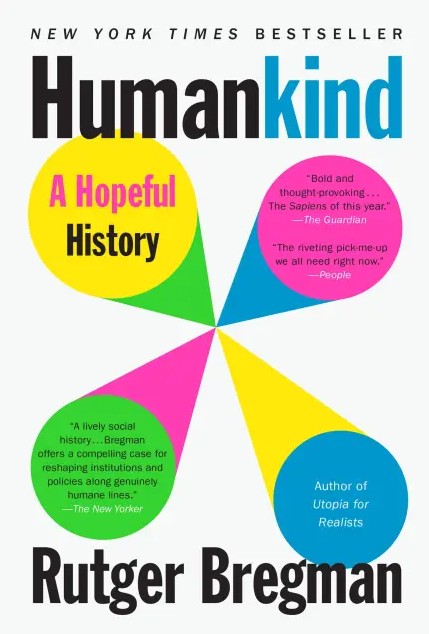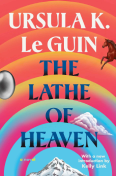Well, here we are. A perfect holiday for those who need a holiday between Thanksgiving and the Winter Holidays and if you want a sugar rush while baking, decorating and buying gifts, why not?
This is not one of four national chocolate holidays touted by the U.S. National Confectioners Association. Nor is it the International Chocolate Day (July 7) or the U.S. National Chocolate Day (October 28). No, this day celebrates the willingness of the general public to grab a pretzel or an orange slice and coat it in melted chocolate.
HOW TO OBSERVE CHOCOLATE-COVERED ANYTHING DAY
 Create your own hand-dipped treats and invite your friends over for board games, movie watching or a white elephant exchange. A good chocolate cookbook is Kate Shaffer’s “Chocolate for Beginners.” Not only learn the basics of tempering chocolate and organizing your workspace, but find recipes for making all types of truffles. There are caramels, peanut butter cups, and my favorite: chocolate frogs with green guts! Continue reading “Chocolate-Covered Anything Day: December 16”
Create your own hand-dipped treats and invite your friends over for board games, movie watching or a white elephant exchange. A good chocolate cookbook is Kate Shaffer’s “Chocolate for Beginners.” Not only learn the basics of tempering chocolate and organizing your workspace, but find recipes for making all types of truffles. There are caramels, peanut butter cups, and my favorite: chocolate frogs with green guts! Continue reading “Chocolate-Covered Anything Day: December 16”
2025 has been a memorable year. One of the things that strikes me most about this year is that we’re over a quarter of the way into this century. Weren’t we just counting down the seconds as the calendar page flipped over from the 20th century to the 21st? Even though it seems like just a moment has passed to me, so much has happened since 2000 — many things that have forever changed our world. Let’s take a look at some of the events and people from the last 25 years!
 What has changed the most in our lives since 2000? My guess would be the mainstreaming of the internet. In “This Is for Everyone: The Unfinished Story of the World Wide Web” Tim Berners-Lee, inventor of the World Wide Web (aka the internet), explores the grand vision he had. Time has proven the internet to be a bold social experiment, powerful and, at times, problematic. Despite the downsides, Berners-Lee casts an optimistic light on the internet’s potential. Continue reading “Literary Links: Reflecting on 25 Years”
What has changed the most in our lives since 2000? My guess would be the mainstreaming of the internet. In “This Is for Everyone: The Unfinished Story of the World Wide Web” Tim Berners-Lee, inventor of the World Wide Web (aka the internet), explores the grand vision he had. Time has proven the internet to be a bold social experiment, powerful and, at times, problematic. Despite the downsides, Berners-Lee casts an optimistic light on the internet’s potential. Continue reading “Literary Links: Reflecting on 25 Years”
Below I’m highlighting some nonfiction books coming out in December. All of the mentioned titles are available to put on hold in our catalog and will also be made available via the library’s Overdrive website on the day of publication in eBook and downloadable audiobook format (as available). For a more extensive list of new nonfiction books coming out this month, check our online catalog.
Top Picks
 “Queens at War: England’s Medieval Queens” by Alison Weir (Dec 2)
“Queens at War: England’s Medieval Queens” by Alison Weir (Dec 2)
The tumultuous period in English history that marked the end of the medieval era and the rise of the Tudors comes to stunning life in the final volume of Alison Weir’s four-part Medieval Queens series, filled with dramatic true stories chronicling the turbulent reigns of the last five Plantagenet queens. The fifteenth century was a violent age. In “Queens at War,” Alison Weir chronicles the five queens who got caught up in wars that changed the courses of their lives: the Hundred Years’ War between England and France, and the Wars of the Roses between the royal Houses of Lancaster and York. Against this tempestuous backdrop, Weir describes the lives of five Plantagenet queens, who occupied the consort’s throne from 1403 to 1485. Joan of Navarre was happily married to King Henry IV but was accused of witchcraft by Henry’s heir and imprisoned. Paris-born Katherine of Valois’s political marriage to Henry V was meant to bring peace between England and France. It didn’t, and Henry died during the Hundred Years’ War without ever seeing his newborn heir, Henry VI, who was wed to another French princess, Margaret of Anjou, in 1445. In the Wars of the Roses, Margaret staunchly supported her husband and son. Henry’s successor, Edward IV, became embroiled in scandal after he fell in love with and married Elizabeth Widville, mother of the tragic Princes in the Tower. The notorious Richard III usurped Edward’s throne and married Anne Neville, who died after losing her only child, forsaken by her husband. Continue reading “Nonfiction Roundup: December 2025”
 No matter your pace or path, the library offers companions for the journey. A 19th-century naturalist and a contemporary R&B artist gave shape to my recent trip and softened the landing. Which writers help you light the way?
No matter your pace or path, the library offers companions for the journey. A 19th-century naturalist and a contemporary R&B artist gave shape to my recent trip and softened the landing. Which writers help you light the way?
I board the plane with a book and an album: “The Journal, 1837-1861” by Henry David Thoreau and “Chilombo” by Jhené Aiko. Maybe the artists will have something to say to each other — Thoreau with his call to “throw away a whole day for a single expansion, a single inspiration of air” (Aug. 21, 1851); Aiko with her invitation to “rest your weary heart / dry your teary eyes” (“Born Tired”). Maybe somewhere between cities I will catch my breath.
with his call to “throw away a whole day for a single expansion, a single inspiration of air” (Aug. 21, 1851); Aiko with her invitation to “rest your weary heart / dry your teary eyes” (“Born Tired”). Maybe somewhere between cities I will catch my breath.
Continue reading “Reading, Flying, Flowing: Henry David Thoreau, Jhené Aiko and Other Travelers”
 Book I read: “Humankind: A Hopeful History” by Rutger Bregman
Book I read: “Humankind: A Hopeful History” by Rutger Bregman
Why I checked it out: Last spring I was looking for books about hope and came across this one.
What it’s about: Often we’re told or believe that humans are ruled by self-interest. Bregman explores historic events and research to argue that what defines humans and has made us so successful is our drive to collaborate, our compassionate nature, and our tendency toward kindness.
Why I liked it: It has such a hopeful message about what it is to be human. Maybe if we see ourselves differently it will change what we see as our possible future. Bregman’s style is very readable and engaging and his ideas and conclusions are clearly stated and backed up by data and historical records.
Who will like it: Even if psychology isn’t your thing, Bregman’s style is so readable, I’d recommend it for anyone interested in learning more about human nature.
 Diane Wilson’s novel, “The Seed Keeper” will be the subject of December’s First Thursday Book Discussion at noon on December 4 in the Columbia Public Library.
Diane Wilson’s novel, “The Seed Keeper” will be the subject of December’s First Thursday Book Discussion at noon on December 4 in the Columbia Public Library.
“The Seed Keeper,” spans several generations in a Dakhóta family starting with a Dakhóta girl, her mother and her new born brother fleeing violence and starvation after the 1862 Dakhóta uprising in southern Minnesota. Among their few possessions, they pack a small store of seeds and carefully cache the remaining seeds.
Descendants grow and save seeds, carrying the traditions of their family with them despite hardship and persecution.
In the most recent generation, Rosalie Iron Wing grew up in the woods with her father. He taught her how to survive and shared the stories of the plants and stars and their people. But when he dies, Rosalie is told she has no relatives and is sent to live with a white foster family in Mankato.
But Rosalie did have family and the last surviving elder has painstakingly grown and saved her family’s seeds, hoping to reunite with Rosalie.
Weaving together the voices of four generations, Diane Wilson extends the symbolism inherent in seeds into this family’s story of perseverance, reawakening, and remembering.
Join us on December 4 to share your thoughts and questions with other readers in a facilitated discussion.
“After about two months of the war, I decided to do something normal, ordinary, necessary. I took my 8-year-old daughter for a haircut,” journalist Maram Humaid wrote in October 2024 for Al Jazeera, recounting her first year reporting the war on Gaza. Visiting with Najla the hairdresser, Humaid is moved by her generosity in sharing stories that Najla’s clients have shared. These “side-stories” are in some ways at odds with the pressing priorities of Humaid’s journalism.
 The necessity Humaid discovers in these ordinary stories speaks to alternative ways of grasping the flow of events or “sitting in the room with history,” as Dionne Brand put it in “A Map to the Door of No Return.” Continue reading “Literary Links: History From a First-Person View”
The necessity Humaid discovers in these ordinary stories speaks to alternative ways of grasping the flow of events or “sitting in the room with history,” as Dionne Brand put it in “A Map to the Door of No Return.” Continue reading “Literary Links: History From a First-Person View”
 Brendon Steenbergen
Brendon Steenbergen is a Mid-Missouri author whose latest book is “.” The book details the story of the 1960 Mizzou Football team — the gridiron struggles, the Civil Rights era battles, and their record breaking and controversial national championship run. A two time Mizzou alumnus, Steenbergen has previously worked with Tiger football recruiting, served as a game-day video replay official for the Big 12 and SEC, and has published the book “
Mizzou Sports Through the Ages.” He currently serves as Executive Director for the
Missouri Coalition of Recovery Support Providers (MCRSP). He was kind enough to take the time to be interviewed via email.
Continue reading “Q&A With Brendon Steenbergen, Author of “Respectable Roughnecks””
Below I’m highlighting some nonfiction books coming out in November. All of the mentioned titles are available to put on hold in our catalog and will also be made available via the library’s Overdrive website on the day of publication in eBook and downloadable audiobook format (as available). For a more extensive list of new nonfiction books coming out this month, check our online catalog.
Top Picks
 “Bread of Angels: A Memoir” by Patti Smith (Nov 4)
“Bread of Angels: A Memoir” by Patti Smith (Nov 4)
“God whispers through a crease in the wallpaper,” writes Patti Smith in this moving account of her life. A post–World War II childhood unfolds in a condemned housing complex where we enter the child’s world of the imagination. Smith, the captain of her loyal and beloved sibling army, vanquishes bullies, communes with the king of tortoises, and searches for sacred silver pennies. The most intimate of Smith’s memoirs, “Bread of Angels” takes us through her teenage years where the first glimmers of art and romance take hold. Arthur Rimbaud and Bob Dylan emerge as creative role models as she begins to write poetry then lyrics, ultimately merging both into the songs of iconic recordings such as Horses, Wave and Easter. She leaves it all behind to marry her one true love, Fred Sonic Smith, with whom she creates a life of devotion and adventure on a canal in St. Clair Shores, Michigan. Here, she invents a room of her own, a low table, a Persian cup, inkwell and pen, entering at dawn to write. The couple spend nights in their landlocked Chris-Craft studying nautical maps and charting new adventures as they start a family. A series of profound losses mark her life. Grief and gratitude are braided through years of caring for her children, rebuilding her life and, finally, writing again — the one constant in a life driven by artistic freedom and the power of the imagination to transform the commonplace into the magical, and pain into hope. In the final pages, we meet Smith on the road again, the vagabond who travels to commune with herself, who lives to write and writes to live. Continue reading “Nonfiction Roundup: November 2025”
 While it took me a minute to get into “The Lathe of Heaven,” once I was hooked I could not put it down. It follows George Orr, a resident of the future version of an impoverished and over-crowded Portland, Oregon. George has a special quality to his dreams that alters timelines to make whatever he dreams about become reality. This is a power that overwhelms George and forces him into Dr. Haber’s office, a psychiatrist and dream researcher. Haber manipulates George’s dreams with hypno-therapy and the story winds through multiple versions of reality.
While it took me a minute to get into “The Lathe of Heaven,” once I was hooked I could not put it down. It follows George Orr, a resident of the future version of an impoverished and over-crowded Portland, Oregon. George has a special quality to his dreams that alters timelines to make whatever he dreams about become reality. This is a power that overwhelms George and forces him into Dr. Haber’s office, a psychiatrist and dream researcher. Haber manipulates George’s dreams with hypno-therapy and the story winds through multiple versions of reality.
Because of the nature of this story, Le Guin is able to touch on an incredible number of topics. Class, war, capitalism, gender, race and love are all weaved into this narrative in both obvious and subtle timeline shifts. It was originally written in the 1970’s and set in the 1990’s, so it is very interesting to read the past version of the future and find truths there. I am in awe of this book!
Three words that describe this book: mind-bending, evocative, unique
You might want to pick this book up if: you love a story that keeps you on your toes and gives you a lot to think about! There is no predicting what comes next.
-Isabel
This reader review was submitted as part of Adult Summer Reading. We will continue to share them throughout the year.
 Create your own hand-dipped treats and invite your friends over for board games, movie watching or a white elephant exchange. A good chocolate cookbook is Kate Shaffer’s “Chocolate for Beginners.” Not only learn the basics of tempering chocolate and organizing your workspace, but find recipes for making all types of truffles. There are caramels, peanut butter cups, and my favorite: chocolate frogs with green guts! Continue reading “Chocolate-Covered Anything Day: December 16”
Create your own hand-dipped treats and invite your friends over for board games, movie watching or a white elephant exchange. A good chocolate cookbook is Kate Shaffer’s “Chocolate for Beginners.” Not only learn the basics of tempering chocolate and organizing your workspace, but find recipes for making all types of truffles. There are caramels, peanut butter cups, and my favorite: chocolate frogs with green guts! Continue reading “Chocolate-Covered Anything Day: December 16”






